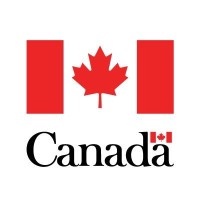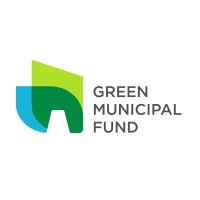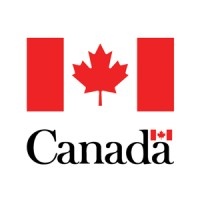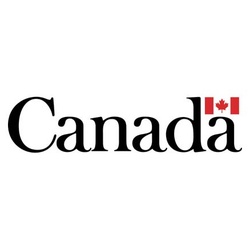
Empowering Futures — Student Work Placement Program
At a glance
- Maximum amount : 7,000 $
- Up to 50% of project cost
- Open Date : February 19, 2018
- Closing date : March 31, 2025
- Utilities
- Canada
- For-profit business
- All revenue ranges
- All organization sizes
- Indigenous Peoples
- Persons with Disabilities
- Newcomers to Canada
- Canadians
- Youth (<40)
- Women
Overview
Get a wage subsidy of up to $5,000 per student when you provide work-integrated learning (WIL) opportunities for post-secondary students, including remote work placements in the field of electricity and up to a maximum of $7,000 per placement for underrep
Activities funded
The Empowering Futures Program is designed to support initiatives that create meaningful work-integrated learning (WIL) opportunities for students in the electricity industry. These activities are aimed at enhancing talent pools and building the future workforce within the sector through financial incentives and collaborative partnerships.
- Creation of new co-op or internship placements that provide practical experience in the electricity sector.
- Funding support for positions that must be net new, exceeding previous fiscal year hiring numbers by the employer.
- Development of learning plans collaboratively by employers and students to ensure impactful knowledge acquisition.
- Introduction of placements that are aligned with participants’ field of study in science, technology, engineering, mathematics, arts, or business.
- Incorporation of activities that foster professional skills such as active listening, collaboration, and social perceptiveness through work placements.
Eligibility
Employer Organizations are eligible for the Empowering Futures grant if they meet the following criteria:
- The organization must be a Canadian-owned company.
- The primary activity of the company should be the generation, transmission, and distribution of electricity.
- The company can be involved in sector support activities such as research and development, business development, or energy efficiency, including renewables.
- Companies engaged in manufacturing equipment or providing services necessary for generation, transmission, or distribution are also eligible.
- Post-secondary institutions are not eligible to receive funding.
Who is eligible?
The Empowering Futures Program is open to Canadian-owned companies operating in the electricity sector, which includes firms involved in the generation, transmission, and distribution of electricity. This also encompasses companies engaged in sector support like research and development, business development, and energy efficiency initiatives. Additionally, firms involved in manufacturing equipment or providing services essential for electricity generation, transmission, or distribution are eligible. Applicants must ensure that their organizational activities align with these specified domains to qualify for funding under the program.Who is not eligible
This grant program is targeted at specific sectors within the electricity industry, thereby excluding certain companies and industries not aligned with its objectives.
- Non-Canadian-owned companies.
- Firms not engaged in the generation, transmission, or distribution of electricity.
- Organizations not involved in renewables, R&D, business development, or energy efficiency within the electricity sector.
- Companies not involved in manufacturing equipment or providing services necessary for the electricity industry.
- Post-secondary institutions.
Eligible expenses
The Empowering Futures grant supports projects and activities that create new Work-Integrated Learning (WIL) opportunities for students in Canada’s electricity industry. These projects are designed to bridge the gap between education and employment, helping students gain relevant experience while contributing to the workforce.
- Creation of co-op positions for students in science, technology, engineering, mathematics, arts, or business programs.
- Development of internships that align with the students' academic studies and career aspirations.
- Establishment of apprenticeships that provide hands-on experience and skill-building opportunities in the electricity sector.
- Facilitation of applied projects or capstone projects that enhance students’ practical knowledge and industry readiness.
- Conducting case competitions that encourage innovative problem-solving and industry engagement among students.
Eligible geographic areas
The Empowering Futures Program applies to eligible employers throughout Canada, aligned with the national scope of the Student Work Placement Program.
- All provinces and territories in Canada.
Selection criteria
The Empowering Futures Program has specific eligibility requirements for organizations, participants, and the nature of employment opportunities, serving as evaluation and selection criteria to determine grant funding suitability. These criteria ensure that applicants align with the program's objectives to provide meaningful work-integrated learning opportunities for students in the Canadian electricity sector.
- Must be a Canadian-owned company.
- Primary activities must include generation, transmission, and distribution of electricity or sector support in areas like renewables, R&D, business development, and energy efficiency.
- Eligible participants must be full-time or part-time post-secondary students who are Canadian citizens, permanent residents, or persons with refugee protection in Canada, legally able to work in Canada.
- Employment positions must provide a full or part-time work opportunity for students enrolled in STEM, arts, or business programs and must not be funded by another federal program.
- Employers must not recruit friends or family members without nepotism policies in place and provide meaningful work-integrated learning opportunities for at least 12 weeks (exceptions possible).
- Retroactive applications for funding are not accepted.
- Employers must adhere to the "net new" rule, demonstrating that EHRC funding increased the number of students hired compared to the previous fiscal year.
- Placements should not exceed one year, and the same student cannot be funded for the same type of employment with the same employer more than once.
- Employers must develop a Formal Learning Plan with the participant and provide monthly financial claims and progress reports.
- Reimbursement: Standard is 50% of gross pay, up to $5,000; increased reimbursement is 70%, up to $7,000 for first-year students, women in STEM, newcomers, persons with disabilities, and Indigenous Peoples.
How to apply
Employer Submits Application
- Access the application portal provided by Electricity Human Resources Canada (EHRC).
- Fill out the employer application form with required organizational information.
- Ensure all eligibility criteria for the employer are met before submission.
Participant Sends Eligibility Form
- Each student participant must complete and submit an eligibility form.
- Ensure participant details align with program requirements.
Application Processing
Contract Signing
Create a Learning Plan
Submission of Monthly Claims
- Monthly financial claims for subsidy reimbursement must be submitted by the employer.
- Include wage proofs and other required documentation.
Evaluation Surveys
Additional information
Here are additional relevant details for this grant:
- Employers must provide proof of co-op placement employment and related documentation upon request.
- A Formal Learning Plan must be developed with the participant before the start of the placement.
- Monthly financial claims and progress reports for each student are required.
- Placements should be at least 12 weeks long, although exceptions can be discussed.
- The program offers professional skills training courses to participants free of charge, enhancing their skill sets beyond technical knowledge.
- Employers and participants must complete evaluation surveys at the end of the funded placement.
Contacts
Frequently Asked Questions about the Empowering Futures — Student Work Placement Program Program
What is the Empowering Futures — Student Work Placement Program?
How much funding can be received?
What is the deadline to apply?
Who is eligible for the Empowering Futures — Student Work Placement Program program?
What expenses are eligible under Empowering Futures — Student Work Placement Program?
Who can I contact for more information about the Empowering Futures — Student Work Placement Program?
Where is the Empowering Futures — Student Work Placement Program available?
More programs like this

NRC IRAP – Support for clean technology
National Research Council Canada (NRC)
Artificial Intelligence for Canadian Energy Innovation
Natural Resources Canada (NRCan)
Capital project: Community Energy Systems
Green Municipal Fund (GMF)
Indigenous and Stakeholder Capacity Fund - Indigenous Capacity Support
Canadian Nuclear Safety Commission (CNSC)
Indigenous and Stakeholder Capacity Fund - Regulatory Policy Dialogue
Canadian Nuclear Safety Commission (CNSC)
Indigenous and Stakeholder Capacity Fund - Engagement and Collaboration Support
Canadian Nuclear Safety Commission (CNSC)
On-road Transportation Decarbonization — Demonstration Projects
Natural Resources Canada (NRCan)
iVisit
National Research Council Canada (NRC)
Critical Minerals Infrastructure Fund – Shovel ready Stream
Government of Canada